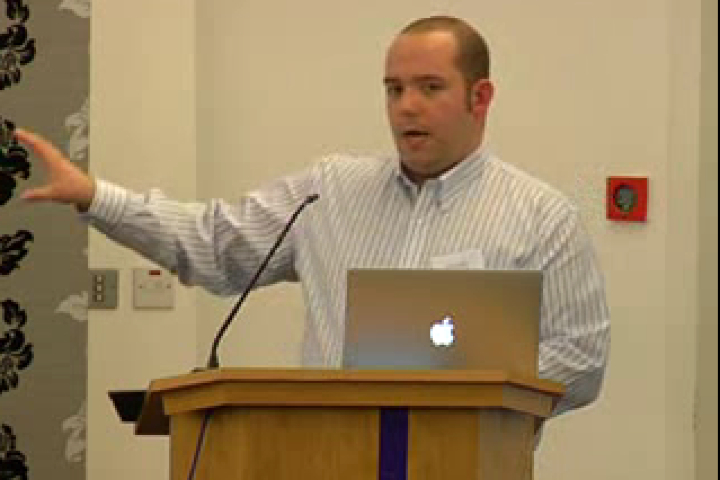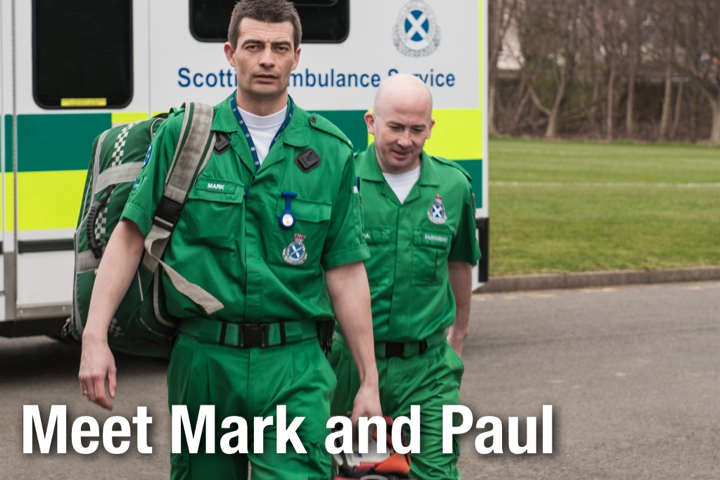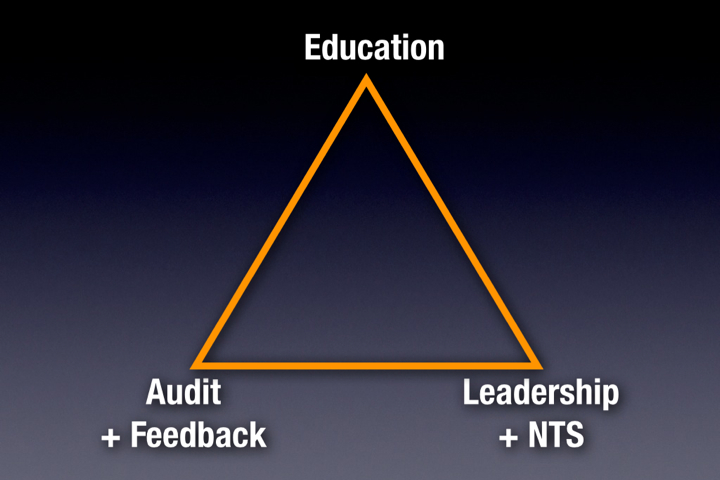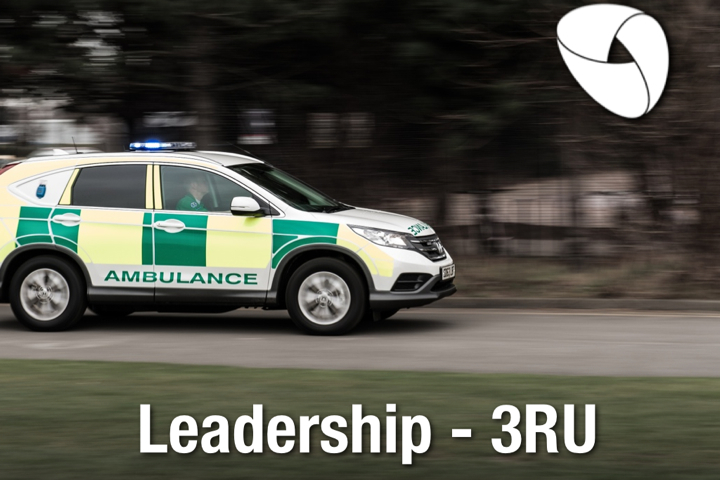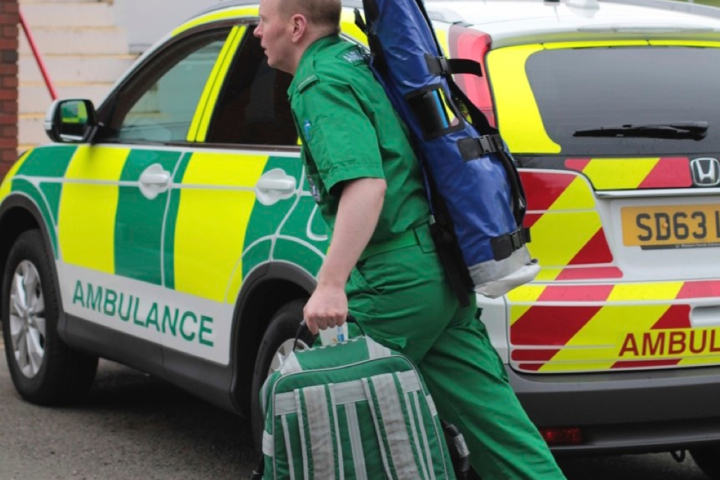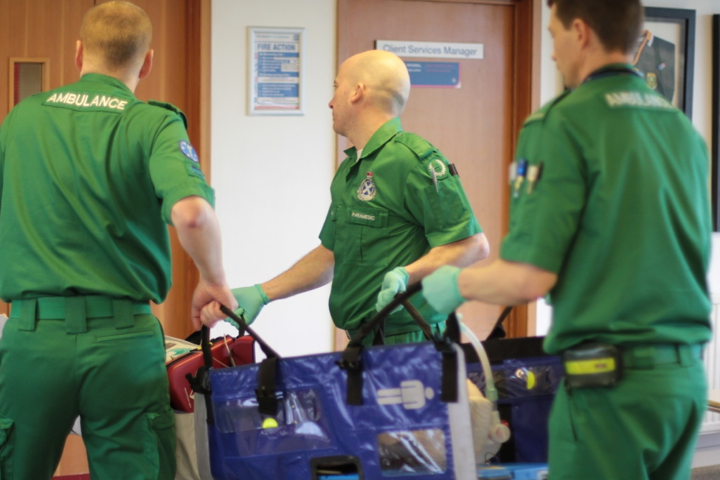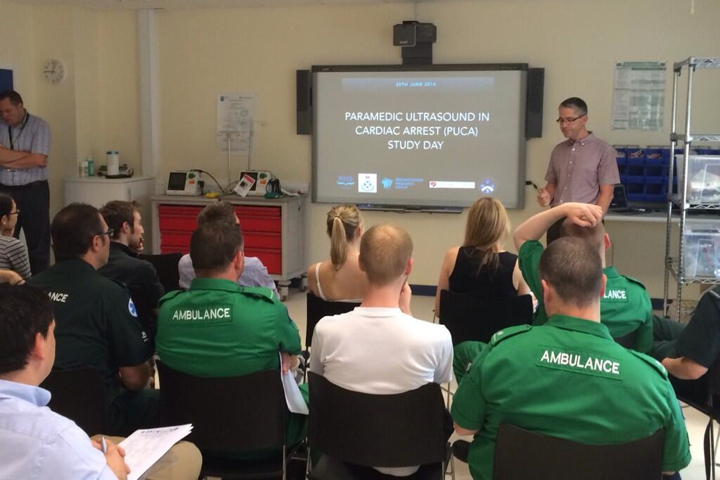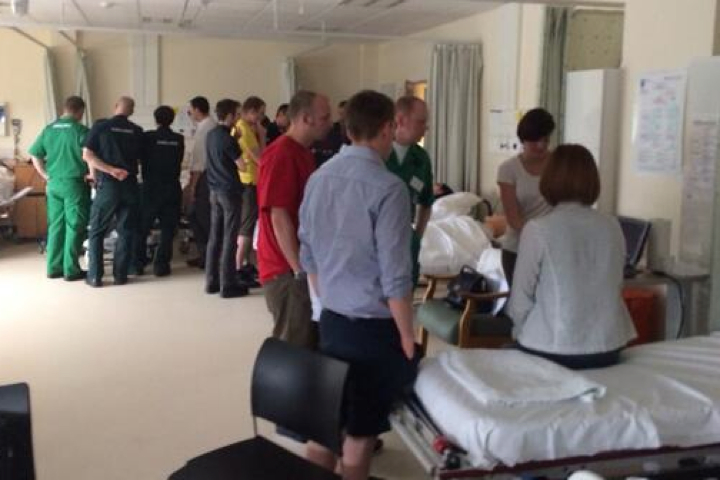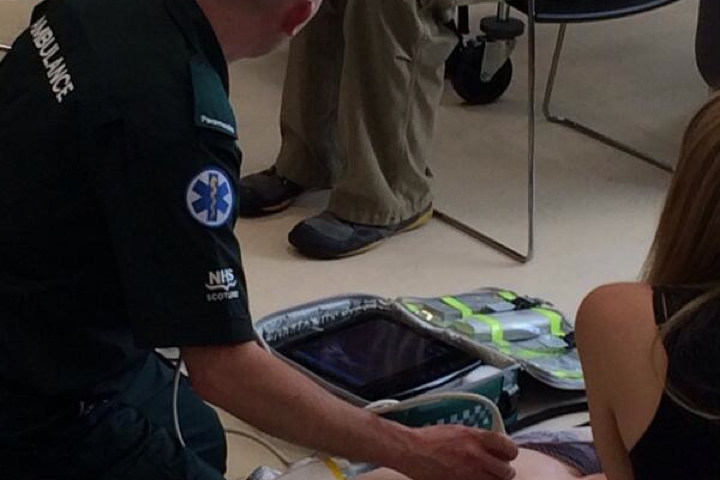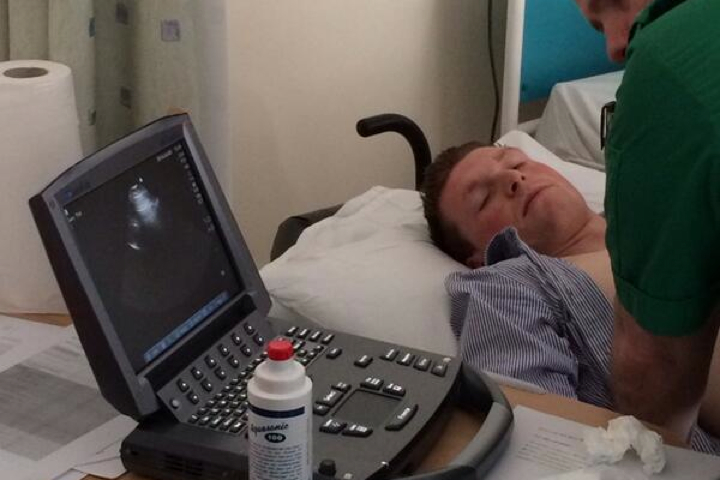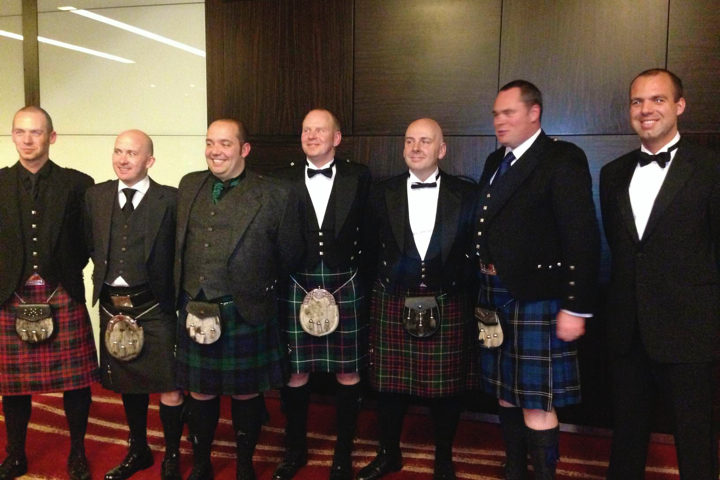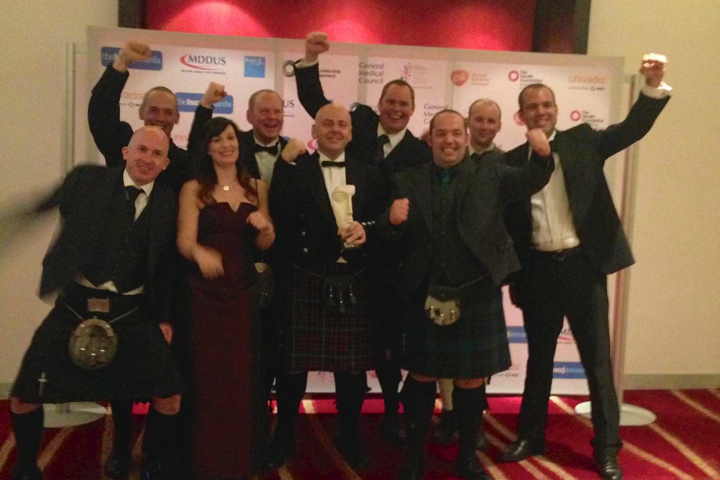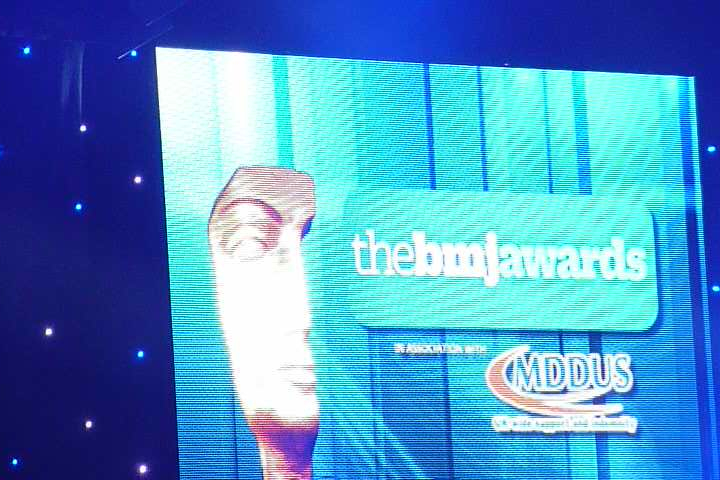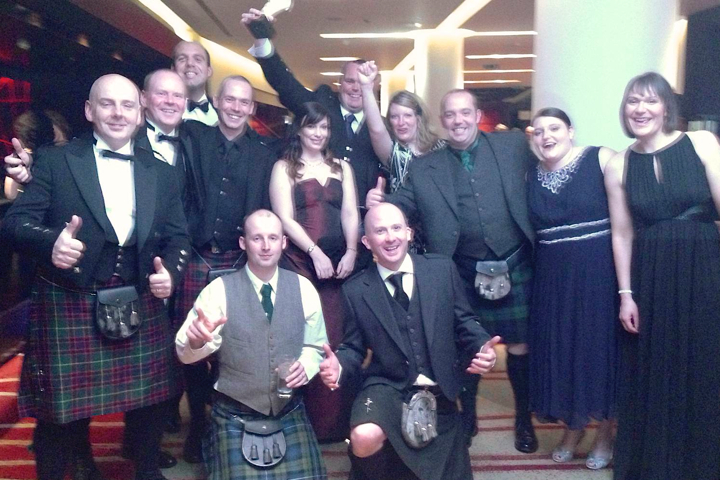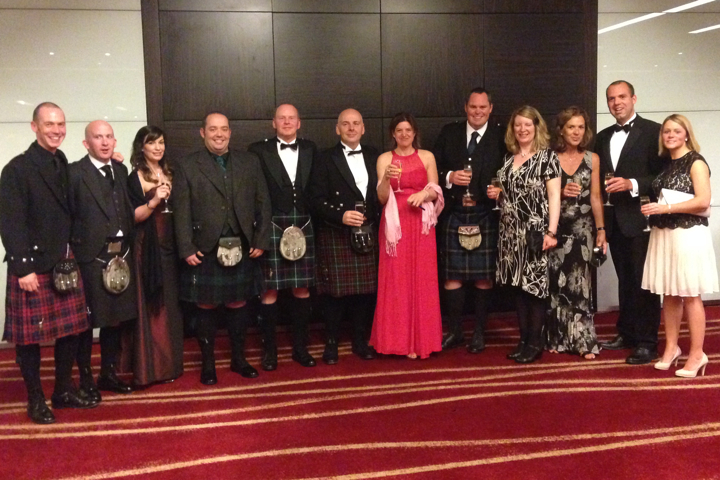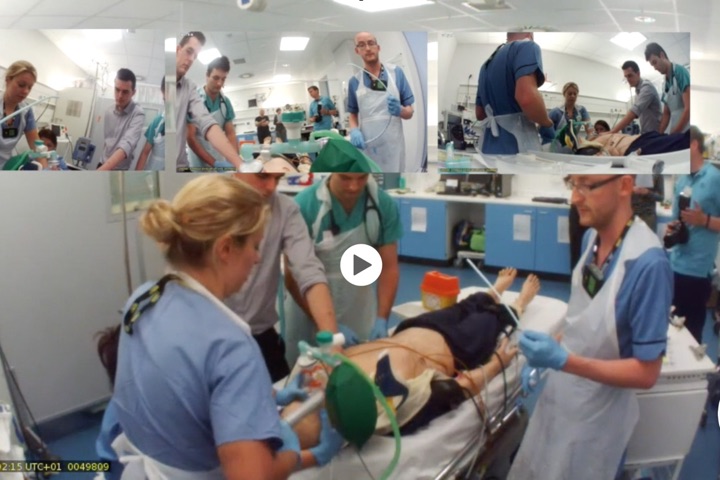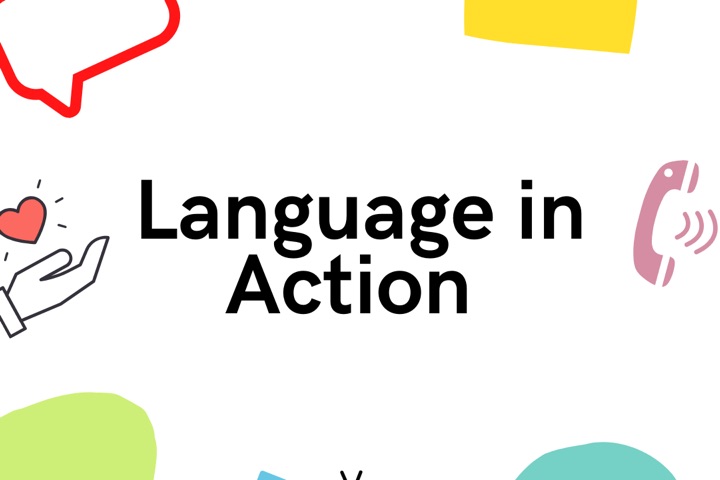Jun
23
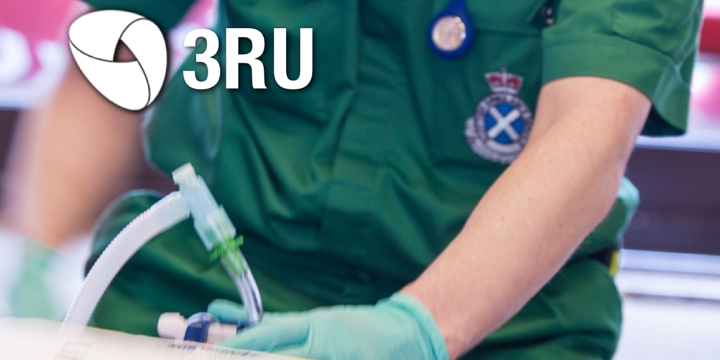
23 Jun 2014
3RU showcased as ‘trailblazers’ at the Scottish Ambulance Service Annual Review 2014.
Master of Ceremonies Geoff Holt from the Scottish Health Council said, “If you always do what you always did, you’ll always get what you always got—these people are stepping out there and trying to push it forward”
See the videocast of the Annual Review including Colin Crookston’s great presentation of the work of the 3RU team here.
Jun
20
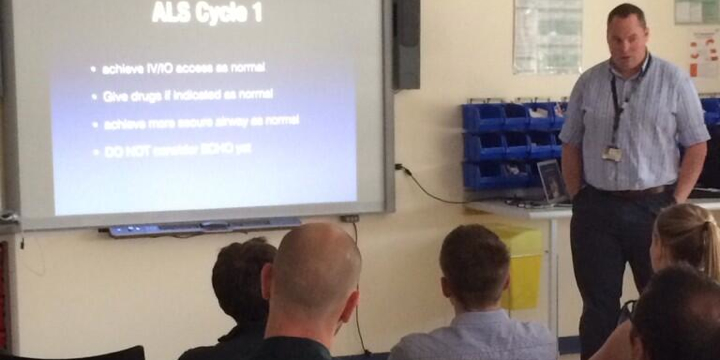
20 Jun 2014
Matt Reed, Steven Short and a faculty of ED ultrasound practitioners put the 3RU team through their paces. Ultrasound is a useful tool in the ED during resuscitation after OHCA, but how will it translate into the ‘perfect 10’ workflow? The team had a great day learning at the feet of the masters – now to put it all into practice… Watch this space.
Thanks to the faculty, Becks Cranfield, Emma-Beth Wilson, Mike Wilson, Doug Murray, Rav Kishen, Graeme McAlpine, Katy Letham and Shirin Brady. Also a big thank you to the team of ‘subjects’, Sarah Langlands, Connor Bowbeer, Yeo Hui, and Jasmine Shen.
May
15
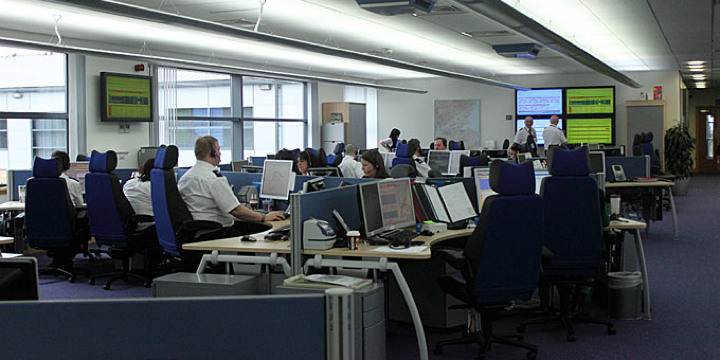
Posted by Scott James, Gareth Clegg | 15 May 2014
Untreated ventricular fibrillation is lethal, a patient’s probability of survival ebbing away at around 10% per minute.
Bystander CPR is key initial link in the chain of survival and will buy time until a life-saving defibrillatory shock can be delivered. The interactions between the 999 call-maker and the ambulance service call-taker influence the time taken for this initial CPR to begin. There is great variability in the time taken up by call-maker/call-taker interaction prior to CPR starting and we wanted to know why this is the case, and how we could minimise this time.
RRG enlisted the help of Professor Holly Branigan (Chair in Psychology of Language and Cognition) and Dr Ellen Bard (Reader in Psychology and Linguistics) at the University of Edinburgh. Scott James – medical student member of the RRG – began by transcribing the audio recordings of fifty non-trauma, adult cardiac arrest calls and mapped them onto the key stages of the AMPDS dispatch protocol. We identified two stages where the calls commonly become ‘trapped’ – determining whether the patient was breathing and attempting to move the patient onto a hard surface. Current work is focussed on dissecting the reasons for this, and developing solutions.
Read the paper published in Resuscitation here: http://www.resuscitationjournal.com/article/S0300-9572(13)00451-6/fulltext
May
11
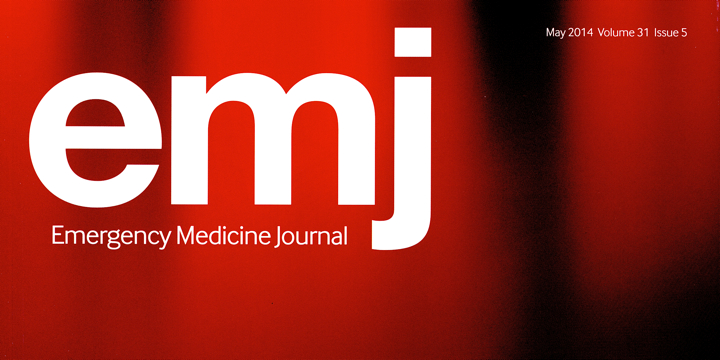
11 May 2014
In an original article published in this months EMJ – Scott Clarke, Richard Lyon, Steven Short, Colin Crookston and Gareth Clegg describe the TOPCAT2 project which birthed the Resuscitation Rapid Response Unit (3RU) in Edinburgh.
A specialist, second-tier response to out-of-hospital cardiac arrest: setting up TOPCAT2
Emerg Med J 2014;31:5 405-407 Published Online First: 30 January 2013
May
09
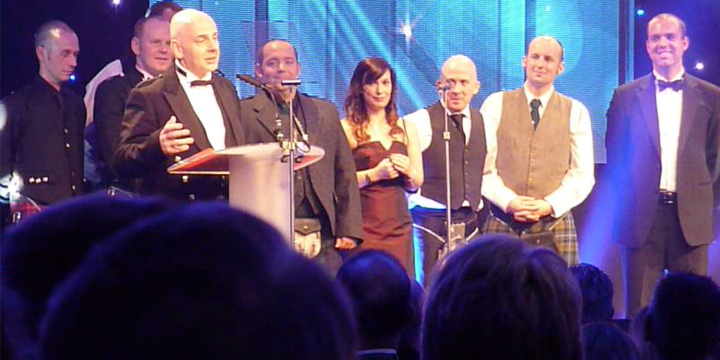
09 May 2014
The 3RU team was recognised as Emergency Medicine Team of the Year at the BMJ awards last night. The squad romped home to victory in the face of some stiff competition. We are very proud to be recognised in this way by our peers in the medical profession. Congratulations to the team. Many thanks also to all of the frontline ambulance crews and ambulance control centre staff who have worked alongside 3RU to dramatically improve survival after OHCA in Edinburgh.
Welcome to the RRG News area where we'll keep you up to date with what's happening and the work we're doing.
If you would like to know more or require any press information please contact us.
14 Mar 2024
Scottish Government and St John Scotland have confirmed funding to enable the PADmap web portal
27 Nov 2023
RRG presented at the 15th EMERGE day conference
09 Oct 2023
SCAS is series of events where we be highlight the change in culture and clinical outcomes after out-of-hospital cardiac arrest across Scotland following the launch of Scotland’s Strategy for OHCA. SCAS23 ‘Getting our SHIFT together’ was staged at the Hilton Doubletree at Edinburgh Airport on October 6th. It was a highly informative and entertaining day […]
12 Jan 2023
Diane Lac has completed a survey of individuals, groups and organisations involved in PAD installation.
02 Dec 2022
The Resuscitation Research Group at Emerge14
15 Nov 2022
The latest OHCA data has been published, here is a summary of the main findings
>
More news
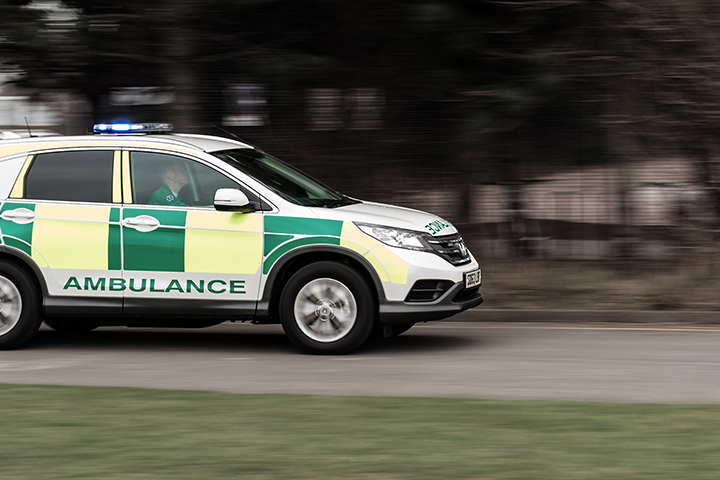
A squad of 12 paramedics from the Scottish Ambulance Service make up 3RU.
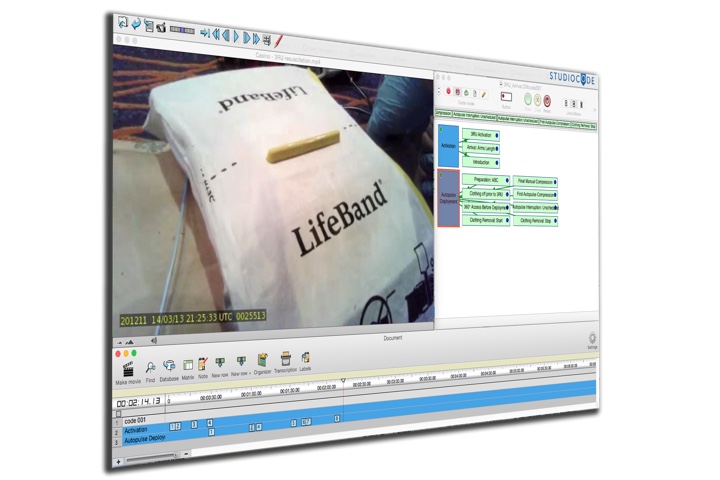
A project to investigate the association between non-technical skills performance and technical performance during OHCA resuscitation


